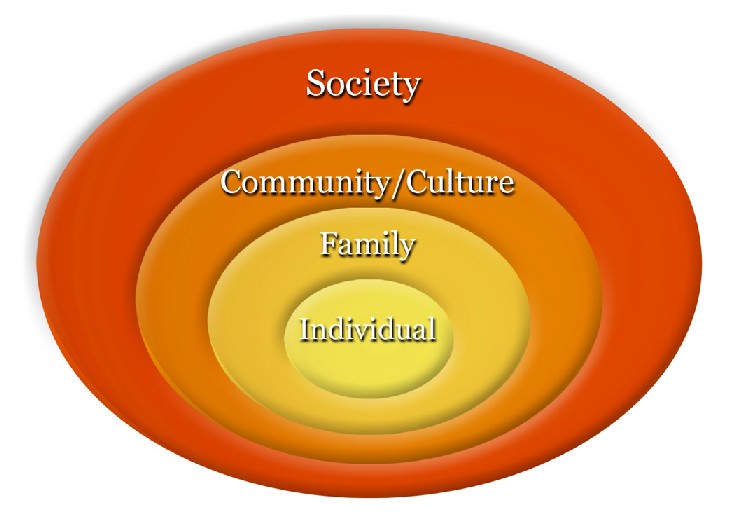What is meant by social institution? Elaborate the multidimensional functions and characteristics of family? The Concept of Social Institution In every society there are certain basic social needs, it is a must for the society to meet these needs for the survival and satisfaction of its members. In each society, therefore, people create social institutions to meet these needs. What is an institution? The sociological concept of the term is different from its common usage. An institution is not a building; it is not a group of people; it is not an organization; An institution is a system of norms to achieve some goal or activity that people feel is important, or more formally, an organized cluster of folkways and mores centered around a major human activity. Institution are structured processes through which people carry on their activities. Institutions do not have members; they have followers. This is a […]
Sociology, Basic characteristics, Theoretical Perspectives of Sociology
What is Sociology? What are its basic characteristics? Explain major theoretical perspectives of Sociology? Definition of Sociology The subject has been looked from various points of view and now it is an opportune time to define the subject properly. According to P.A. Sorokin “sociology is a generalizing science of socio-cuitural phenomena viewed in their generic forms, types, and manifold interconnections. ” (Bierstedt, 1970. 3-28) Sociology is the scientific study of human society and social behaviour. The subject matter of sociology is huge and complex, and the knowledge produced by sociological research is still imperfect in many ways. However, it has taught us a great deal about ourselves. (RotarTson, 1977 :3) No formal definition of sociology is very satisfactory. Short definitions don’t really define; long definitions are clumsy. Yet a definition of some sort is needed, and sociology is often defined as the scientific study of human social life.. Human beings […]
Conditions of Media Effectiveness
Conditions of Media Effectiveness: Lazarsfeld and Merton say three conditions are required for media effectiveness: monopolization; canalization rather than change of basic values; and supplementary face-to-face contact. Monopolization occurs in the absence of mass media counterpropaganda. It exists not only in authoritarian societies but also in any society in which there is an absence of countering views on any issue, value, policy, or public image. Sometimes this near or complete absence is illustrated by the fact that when a “sacred” institution is questioned by the media, the article or program becomes the center of a storm of controversy and is remembered years later as an outstanding exception to the norm. An example is the CBS documentary “The Selling of the Pentagon,” which raised the question of what were termed “improper military information activities.” Many critics of the documentary generalized their criticism and said the program was an attack on the […]
Uses and Gratifications Theory
What does the Uses and Gratifications theory view? Uses and Gratifications Theory: One influential tradition in media research is referred to as ‘uses and gratifications’ (occasionally ‘needs and gratifications’). This approach focuses on why people use particular media rather than on content. In contrast to the concern of the ‘media effects’ tradition with ‘what media do to people’ (which assumes a homogeneous mass audience and a ‘hypodermic’ view of media), U & G can be seen as part of a broader trend amongst media researchers which is more concerned with ‘what people do with media’, allowing for a variety of responses and interpretations. However, some commentators have argued that gratifications could also be seen as effects: e.g. thrillers are likely to generate very similar responses amongst most viewers. And who could say that they never watch more TV than they had intended to? Watching TV helps to shape audience needs and expectations. U & G […]
Cultivation Theory
What does the Cultivation theory propose? Cultivation Theory: Explanation of Theory: Gerbner’s cultivation theory says that television has become the main source of storytelling in today’s society. Those who watch four or more hours a day are labeled heavy television viewers and those who view less than four hours per day, according to Gerbner are light viewers. Heavy viewers are exposed to more violence and therefore are effected by the Mean World Syndrome, an idea that the world is worse than it actually is. According to Gerbner, the overuse of television is creating a homogeneous and fearful populace. Metatheoretical Assumptions: Ontological Assumptions: determanistic——-X——free will Epistemological Assumptions: Truth——————X—————truths Axiological Assumptions: value neutral———X————value laden Individual Interpretations and Critique: The cultivation theory is a scientific theory. Epistimologically speaking, Gerbner believes in one truth. The theory does not believe television viewers have a choice in whether they are effected by media violence or not. […]
Theory of Spiral of Silence
Theory of Spiral of Silence: Elisabeth Noelle-Neumann, the German political scientist contributes the famous model called “Spiral of Silence”. In 1947 Neumann and her husband found “Public Opinion Organization” in German and also she was a President of “World Association for Public Opinion Research” in 1978 to 1980. Through this Spiral of Silence theory Neumann indirectly explains the Jews status during World War II under Nazi’s control. Here, Adolf Hitler dominated the whole society and the minority Jews became silent due to the fear of isolation or separation. Theory: The one view dominated the public scene and others disappeared from the public awareness as it adherents became silent. In other words, the people fear of separation or isolation those around them, they tend to keep their attitudes to themselves when they think they are in the minority. This process is called “Spiral of Silence”. Explanation of Theory: The Spiral of […]
